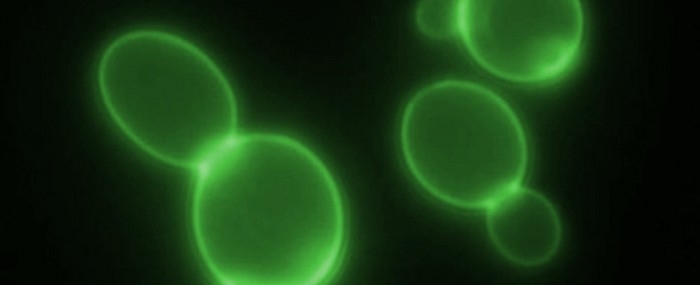

Based on a reaction between yeast and the novel coronavirus, the test will rapidly detect the presence of SARS-CoV-2 in saliva and will be available by mid-2021 (image: BIOinFOOD)
Based on a reaction between yeast and the novel coronavirus, the test will rapidly detect the presence of SARS-CoV-2 in saliva and will be available by mid-2021.
Based on a reaction between yeast and the novel coronavirus, the test will rapidly detect the presence of SARS-CoV-2 in saliva and will be available by mid-2021.

Based on a reaction between yeast and the novel coronavirus, the test will rapidly detect the presence of SARS-CoV-2 in saliva and will be available by mid-2021 (image: BIOinFOOD)
By Eduardo Geraque | Innovative R&D – Incubated at the University of Campinas (UNICAMP) in the state of São Paulo, Brazil, and supported by FAPESP’s Innovative Research in Small Business Program (PIPE), BIOinFOOD is a startup that is developing a rapid COVID-19 diagnostic test based on a patent application filed by students at UNICAMP’s Genomics and Bioenergy Laboratory.
The test is based on a biosensor consisting of a genetically modified brewer’s yeast (Saccharomyces cerevisiae), which changes color if human ACE2 receptor expressed by the yeast’s membrane binds to the spike glycoprotein present on the external surface of the virus.
“The yeast is normally beige. When this interaction takes place, the presence of the virus is signaled by a fluorescent green that can easily be detected by the equipment typically found in clinical analysis labs,” says Gleidson Silva Teixeira, one of BIOinFOOD’s partners.
Teixeira studied under Professor Gonçalo Amarante Guimarães Pereira, who leads one of the laboratories at UNICAMP’s Institute of Biology, where the idea came up. According to the researchers’ expectations, the new test will be both fast and cheaper than RT-PCR because of the low cost of yeast, the main input.
Another important difference is that it will probably use saliva. Being non-invasive is an advantage for diagnostic tests. Many people experience intense discomfort when undergoing collection of their material by nasal swab.
The sensitivity of the test is expected to be high, meaning it will be able to detect the virus only a few days after infection. “We plan eventually to have the yeast emit red light, which will be easier to identify,” Teixeira says. “In this case, anyone will be perfectly capable of using the test, even at home.”
Once the working hypothesis formulated in UNICAMP’s laboratories has been fully validated, the startup’s scientists expect the test to be brought to market and freely available for purchase during first-half 2021.
“The project is also supported by FINEP [the Brazilian government’s innovation agency] and must be developed rapidly because we can’t miss an opportunity to help combat the pandemic,” Teixeira says.
The idea of developing a product designed to combat COVID-19 arose from a call issued by FAPESP when the pandemic arrived in Brazil (in March 2020), inviting researchers in the state of São Paulo to submit proposals for creative solutions in this direction. “The secret, in this case, is genetic modification of the yeast,” Teixeira says. “We’re confident the hypothesis will work and the biosensor we’re constructing will emit a totally reliable signal.”
The raw materials for the product are simple and distribution of the diagnostic test should be logistically straightforward.
Bread and beer
The innovation involved in the COVID-19 diagnostic test came out of a technology mastered previously by BIOinFOOD, according to one of its owners. The startup offers a biotech platform based on S. cerevisiae, a versatile microorganism widely used in industry as a biofactory. Organic acids, amino acids, enzymes, and therapeutic proteins are some of the outputs of the platform.
“In the specific case of the technology used to develop the COVID-19 test, we want to see the platform being adapted to other types of disease in future,” Teixeira says.
The firm also develops custom yeasts for use by bakeries and breweries to suit consumer tastes. “We have several yeast-based solutions. Yeasts are well-known microorganisms. They can also be used in animal feed,” Teixeira says.
Republish
The Agency FAPESP licenses news via Creative Commons (CC-BY-NC-ND) so that they can be republished free of charge and in a simple way by other digital or printed vehicles. Agência FAPESP must be credited as the source of the content being republished and the name of the reporter (if any) must be attributed. Using the HMTL button below allows compliance with these rules, detailed in Digital Republishing Policy FAPESP.





